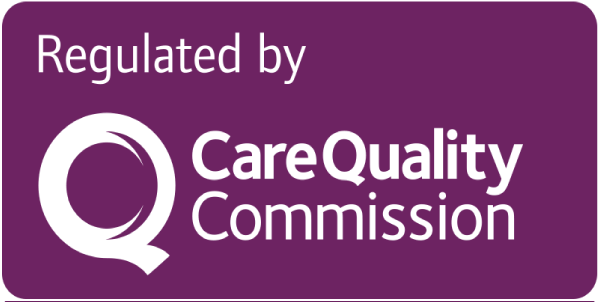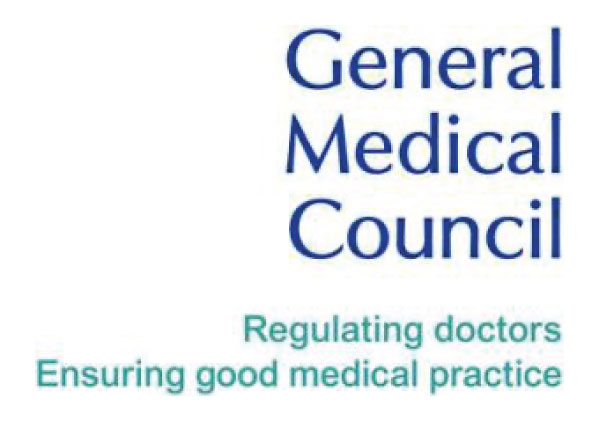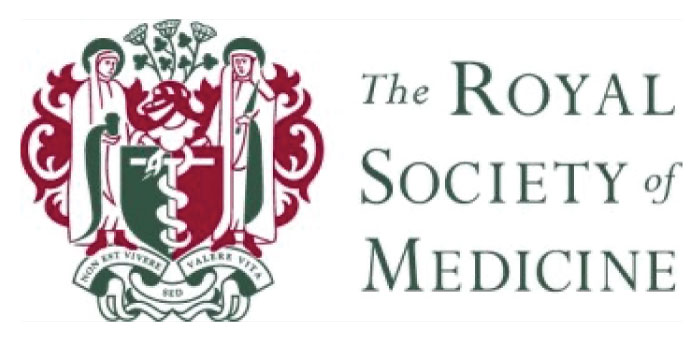Harmon Consent Form
HARMON INFORMED CONSENT FOR PERSONALISED BIOIDENTICAL HORMONE REPLACEMENT THERAPY (CBHRT)
Because of the rapidly changing ideas about the safety and effectiveness of hormone therapy, it is important to be sure that you have information about the risks and benefits of hormone therapy before you take the therapy discussed. By using our services, you therefore are confirming to us that you have read, understood and agreed to the following information.
As the BMS (British Menopause Society) attests in its “recommendations on hormone replacement therapy in menopausal women”, “the decision whether to take HRT, the dose of HRT used and the duration of its use should be made on an individualised basis after discussing the benefits and risks with each patient. This should be considered in the context of the overall benefits obtained from using HRT including symptom control and improving quality of life as well as considering the bone and cardiovascular benefits associated with HRT use. The HRT dosage, regimen and duration should be individualised, with annual evaluation of advantages and disadvantages”1
As the The Society of Endocrinology attest, “testosterone deficiency in men is associated with several physical, psychological and social symptoms and, with rare exceptions, patients require long‐term testosterone treatment and older age or disability should be no barrier for initiating testosterone treatment. Current treatment formulations and modalities for testosterone treatment can offer an individualized treatment regime if accompanied by appropriate patient education and shared decision making. The clinician should support the patient to identify a suitable testosterone formulation through a structured needs assessment and by providing patients with a rationale of benefits and disadvantages of each testosterone treatment formulation”2
Bioidentical hormones have the same chemical structure as the body’s naturally occurring hormones, which can make them more tolerable, as they fit the same hormone receptors as our natural hormones. Your BHRT prescription is made in a compounding pharmacy and the dose is adjusted to your individual clinical needs, as discussed during your consultation. As it is not a fixed dose combination but personalised, this medication is legal, quality controlled but “unlicensed”. Compounded hormones are called “unlicensed” but don’t panic they are medically safe. The reason compounded bioidentical hormone replacement therapy (cBHRT) have been labelled as unlicensed is because it is personally tailored to each patient. As the treatment is individually compounded for a single person, based on personal clinical needs, it is impossible to licence it. In order to licence a medication, you need to perform large scale, controlled clinical trials – obviously this is not possible with one single individualised dose. Although it might sound scary at first, unlicensed prescriptions actually mean that a patient is receiving treatment that has been specifically created to meet their specific clinical needs, and of course the individual hormone components are licensed. Prescribing unlicensed medicines is a regulated practice that is recognised and guided by the medical, nursing and pharmaceutical professional bodies. In fact, the law allows doctors to prescribed unlicensed medicines according to regulation 167 to the HMA 2012, and the two main regulatory bodies that issue guidance in UK about the prescribing of unlicensed medicines are the GMC and the MHRA. Harmon strictly adheres to the NICE, MHRA and to the UK Government “guidelines on off-label or unlicensed use of medicines”4,5,6.
BHRT may contain one or any combination of the following hormones in women: estrogens (estradiol and estriol), progesterone, pregnenolone, testosterone and dehydroepiandrosterone (DHEA); in men: testosterone, progesterone, pregnenolone, and dehydroepiandrosterone (DHEA).
- BHRT is often prescribed to women during peri-menopause (the time from first symptoms to up to several years beyond the last period) and menopause (starting one year after the last period) for symptoms of hot flushes, vaginal dryness, loss of libido, depression, irritability and joint pain. There may be other long term beneficial effects of treatment in the prevention of age-related diseases as menopause is associated with an increased risk of osteoporosis, cardiovascular disease and dementia.
- BHRT is often prescribed to men during peri-andropause (when testosterone levels start to decline) and andropause, also known as the “male menopause”, (when Total Testosterone blood level are between 8 and 12 nmol/L and symptoms of low testosterone are present) for symptoms of hot flushes, night sweats, erectile dysfunction, low libido, depression, brain fog and loss of muscle tone and strength. There may be other long term beneficial effects of treatment in the prevention of age-related diseases as andropause is associated with low sexual desire, erectile dysfunction, decreased bone mineral density, increased risk of type 2 diabetes mellitus, increased risk of dementia, increased risk of cardiovascular disease, shorter telomere length and increased all-cause mortality.
Hormone Replacement Therapy (HRT), in the form of estrogen and progesterone, is approved by the NICE (National Institute for Health and Care Excellence)7 and the BMS (British Menopause Society)1 for hot flushes, psychological symptoms, urogenital atrophy and for osteoporosis prevention in menopausal women. Testosterone supplementation is instead recommended for menopausal women with low sexual desire if HRT alone is not effective. The Society of Endocrinology guidelines2 for Testosterone Replacement Therapy (TRT) indicate that men should initiate a Testosterone Replacement Therapy in the presence of total testosterone level <11 nml/L and symptoms of low testosterone. Using it in combination with other bioidentical hormones (such as pregnenolone, testosterone and dehydroepiandrosterone in women and progesterone, pregnenolone, and dehydroepiandrosterone in men) and for other symptoms or problems is considered “off label” use, and the burden is on the Physician to be sure that there is adequate science to support the use in a given situation.
MENOPAUSE
Potential Benefits of Bioidentical Hormone Replacement Therapy in women:
When hormone levels are brought back to “normal” for your age, there is much evidence of the benefits to your overall health. In particular:
- Estrogen and Progesterone
Proven benefits:- Control of menopausal symptoms.
- Maintenance of BMD (bone mineral density) and reduced risk osteoporotic fractures.
Additional Potential Benefits:
- Reduced risk coronary heart disease and reduced risk Alzheimers disease when estrogen started early.
- Reduced risk colorectal cancer.
- Reduced risk Type 2 DM (diabetes mellitus).
- Testosterone is used to treat symptoms or lab tests suggesting suboptimal or deficient hormone levels as determined by your Harmon Doctor. Low testosterone for women is associated with fatigue, weight gain, decreased lean body mass and bone density, and decreased sexual drive and function.
- Dehydroepiandosterone (DHEA) has been shown to improve cognition, cardiovascular health, muscle tone & strength, reduces body fat mass, boosts the immune system and help increases bone density. DHEA can be used to support blood levels of sex hormones and reduce stress-related cortisol levels.
- Pregnenolone is considered a “parent” hormone to a variety of other hormones. Pregnenolone improves learning and memory, boost mood, and improves sleep performance by increasing the amount of time that a person spends in deep sleep; it also inhibits the production of cortisol acting as a stress reducer. This has the added benefit of aiding weight loss, as cortisol increases fat.
Potential risks associated with Bioidentical Hormone Replacement Therapy use in women include:
Studies have shown that using estrogen alone had decreased risk of breast cancer but an increased risk of endometrial cancer. Subsequent studies added progesterone to HRT, which protected the lining of the womb against endometrial proliferation. It is now thought that the combination of estrogen and progestins increases the risk of breast cancer over estrogen alone. The risk of breast cancer depends on a number of other lifestyle and genetic factors, such as obesity, alcohol and smoking. There is not sufficient data to fully quantify the risks associated with bioidentical progesterone, rather than progestins, although preliminary data from cohort studies so far may suggest less risk. Your Harmon Doctor will monitor you regularly through laboratory testing and screening exams such as pelvic ultrasound scan as well as a mammogram/ breast ultrasound, smear test and bone density exam (DEXA scan), and how often these tests are recommended depends on your risk factors and your Harmon Doctor will advise you accordingly
Contraindications to Bioidentical Hormone Replacement Therapy in women:
You should not use BHRT if you have any of the following:
Absolute contraindications:
- Breast, Endometrial or Ovarian Cancer
- Serious Heart, Liver, Kidney Disease.
Relative contraindication:
- Venous Thromboembolism: oral (tablet) form of estrogen is associated with a small increased risk of deep vein thrombosis and pulmonary embolus while transdermal administration of estradiol is unlikely to increase the risk of venous thrombosis above that in non-users. The transdermal route should therefore be considered as the first choice route of estradiol administration in women with risk factors. Evidence from large observational studies and case-controlled studies suggests that micronised progesterone is unlikely to increase the risk of venous thrombosis.
ANDROPAUSE
Potential Benefits of Bioidentical Hormone Replacement Therapy in men:
- Testosterone benefits include:
- behavioral changes such decreasing depression, decreasing anxiety and irritability, increasing energy and motivation, stabilizing moods, allowing one to cope better; improving one’s self-image and self-worth, and enhancing one’s stamina
- improvement in one’s cognitive function so one is no longer operating “in a fog,” improving short-term memory and allowing one to stay focused to complete a task
- physical effects such as decreasing total body fat, increasing lean body mass, increasing muscle mass, and increasing bone mass
- sexual benefits such as increasing libido, increasing early morning erections, increasing firmness, and duration of erections.
- Dehydroepiandosterone (DHEA) has been shown to improve cognition, cardiovascular health, muscle tone & strength, reduces body fat mass, boosts the immune system and help increases bone density. DHEA can be used to support blood levels of sex hormones and reduce stress-related cortisol levels.
- Pregnenolone is considered a “parent” hormone to a variety of other hormones. Pregnenolone improves learning and memory, boost mood, and improves sleep performance by increasing the amount of time that a person spends in deep sleep; it also inhibits the production of cortisol acting as a stress reducer. This has the added benefit of aiding weight loss, as cortisol increases fat.
- Progesterone in men serves as substrate for the production of important hormones such as cortisol and cortisone, and androgens such as androstenedione and testosterone. Other roles of progesterone in men are: holds the serum level of estradiol low; may prevent excessive fluid retention and possible high blood pressure; calms down nerves and muscles thanks to its conversion in the body to the sleeping-inducing and relaxing metabolites, pregnanolone and allo-pregnanolone; stimulates spermatozoid motility and may be important in fertility; builds bone mass.
Potential risks associated with Bioidentical Hormone Replacement Therapy in men use include:
•There is a possible increased cardiovascular risk associated with testosterone use. Studies included aging men treated with testosterone. Some studies reported an increased risk of heart attack or stroke associated with testosterone treatment, while others did not •Polycythemia •Worsening of Prostate Cancer •Worsening of Sleep Apnea •Decreased testosterone and/or sperm production and testicular shrinkage •Fluid retention or edema: a small number of men on testosterone therapy may retain fluid. This is reversed by reducing the dosage of testosterone and/or by the use of a diuretic •Elevated PSA •Elevated Cholesterol •Moodiness, Irritability, Aggression •Male Pattern Hair Loss: when this occurs, it is due to testosterone being converted to excess amounts of DHT (dihydrotestosterone) in the hair follicles •Acne: testosterone therapy may increase oil production in the sebaceous glands in the skin, leading to acne. This lasts a short time and is reversed with good face washing, astringents and skin toner •Excess conversion of testosterone to estrogen in the body that can cause Gynecomastia (male breast enlargement) and Enlargement of the Prostate and Urinary Retention. This is prevented by taking an estrogen reducing medication called Anastrozole.
Your Harmon Doctor will monitor you regularly through laboratory testing and screening exams such as prostate/abdominal ultrasound scan as well as ECG under stress, and bone density exam (DEXA scan), and how often these tests are recommended depends on your risk factors and your Harmon Doctor will advise you accordingly.
Contraindications to Bioidentical Hormone Replacement Therapy in men:
You should not use testosterone if you have any of the following:
•Breast cancer •Prostate cancer •Serious Heart, Liver, Kidney Disease •Cerebrovascular accident within the past 6 months •Untreated obstructive sleep apnea •If trying to conceive
COMPOUNDING PROCESS
cBHRT (customised bioidentical hormone replacement therapy) offers personalised solutions for treating hormone imbalances due to menopause or andropause. Personalisation (or the compounding) of hormones follows a prescription that is based on the individual patient’s diagnosis, symptoms and blood hormone levels that are measured at specific time points. cBHRT uses exclusively ‘bioidentical’ hormones. cBHRT is classed as ‘off-licence’ prescribing (also known as ‘unlicensed’) which is common across many healthcare sectors, including paediatrics, clinical nutrition and oncology. Prescribing unlicensed medicines is a regulated practice that is recognised and guided by the medical, nursing and pharmaceutical professional bodies. It allows different medicines to be combined in a formula that is unique to the patient’s individual prescription. The same approved hormones used in licensed BHRT (rBHRT) are combined in a UK pharmacy registered with and regulated by the General Pharmaceutical Council (GPhC). The resulting hormone combination is a named-patient, prescription- specific, quality-assured extemporaneous medicine dispensed under supervision of a qualified pharmacist, as per section 10 of the Medicines Act. Harmon’s laboratory is a compounding pharmacy that adheres to all pharmacy regulations and strictly follows specific GPhC guidance and standards for dispensing unlicensed medicines. The pharmacy compounders are all trained in Pharmaceutical Science and comply with Good Manufacturing Practice (GMP), which is a UK wide industry standard. Each individual prescription is checked by a Compounding Pharmacist who will ensure that the different pharmaceutical ingredients are all compatible with each other as well as the bases they are mixed in. The preparation process is electronically tracked from beginning to end and every bespoke formulation is quality and accuracy checked against the prescriber’s prescription before being delivered to the patient. With each and every extemporaneously compounded medicine, dosing instructions are clearly stated on the dispensing label and an information leaflet containing safety information about the ingredients it contains and any potential side effects is given to the patient. Harmon’s laboratory only uses pharmaceutical-grade ingredients for hormonal preparations so that patients can be assured of the quality of their products and are regulated, registered and compliant with the GPhC and MHRA.
DECLARATION
- I understand that the role of the healthcare providers at Harmon, are for the treatment of symptoms of menopause or andropause through hormone replacement therapy only. I agree that I am or will be under the care of a primary care physician (GP) for all other health care needs and no advice or material Harmon may share shall act as a substitute for professional medical advice, diagnosis or treatment outside of the scope of its intended use.
- I understand that there are benefits of this treatment if successful, and I also understand that my Doctor at Harmon cannot be sure that the treatment will fully help me.
- I understand that optimal results may consist in clearing up all the symptoms or, as in most cases, clearing up the majority of the symptoms and improving, by 50-70%, the remaining ones. Few patients will still experience symptoms such as disturbed sleep, mood problems, difficulty in losing weight, skin issues even after reaching a perfect hormonal balance. In these cases, Harmon recommends the help of other Healthcare Practitioners, such as Nutritionist, Psychotherapist, Dermatologist, Sleep Specialist. Harmon works closely with those Specialists.
- I have discussed the reasons for taking bioidentical hormones with my Doctor at Harmon and understand why this treatment has been prescribed to me, and the risks associated with taking bioidentical hormones, including but not limited to the possibility of increased risk of some forms of cancer (such as breast, endometrial and/or ovarian cancer in women, and prostate cancer in men), blood clotting, stroke or heart attack.
- The risks and potential side effects associated with Bioidentical Hormone Replacement Therapy (BHRT) have been explained to me, and I have had the opportunity to ask any questions concerning this treatment. I also understand that treatment may affect individuals differently and no outcome can be guaranteed for any one customer.
- I understand that my prescription is personalized specifically for me, based on my individual clinical needs discussed during the medical consultation, therefore a Compounding Pharmacy will compound the medication to the standards required.
- I agree to notify to my Doctor at Harmon immediately if I suspect any adverse reaction or side effects from treatment.
- I understand that, during my first year of personalized bioidentical hormone treatment a follow-up is required with my Doctor at Harmon at 2 months, 6 months and 12 months to establish the most appropriate regime based on my specific needs. During the second year of treatment and annually going forward, a follow-up visit is required twice a year to monitor my treatment regime. I also understand that these follow-ups can become more in number based on how my body will react to the therapy as my treatment path will be completely bespoke. I understand that failing to pursue any follow-up may impact the ability of Harmon to provide effective ongoing treatment.
- I understand that proper monitoring through blood tests and screening exams is mandatory for my safety while on BHRT.
- I understand that failure to comply with required follow-up appointments and monitoring, including follow-up lab work and screening exams, will result in termination of therapy.
- I have had full opportunity to read and consider the contents of this consent form, including all risk factors highlighted. I have been given the opportunity to ask questions and they all have been answered to my satisfaction in terms I understand by my Doctor at Harmon. I therefore represent that I am continuing with the service with a full understanding of all possible benefits and risks.
- This consent shall be valid and ongoing unless specifically revoked. I release and hold harmless healthcare providers at Harmon from any and all liability associated with this treatment and I accept the risks associated.
- I certify that I have read the above consent, fully understand it, and believe that I have adequate knowledge upon which to base this informed consent and hereby understand that by agreeing to it I am requesting and consenting to treatment.
- Harmon does not represent or warrant the accuracy, adequacy or completeness of the information set out and is acting to the standard of a reasonable provider of equivalent services. To the extent permitted by law, Harmon excludes any and all liability, including any liability for negligence and all loss, including indirect or consequential damages arising from or in relation to the services or information set out herein.
REFERENCE
- https://thebms.org.uk/wp-content/uploads/2022/12/04-BMS-TfC-HRT-Guide-NOV2022-A.pdf
- https://onlinelibrary.wiley.com/doi/full/10.1111/cen.14633
- https://www.legislation.gov.uk/uksi/2012/1916/regulation/167/made
- https://www.nice.org.uk/about/what-we-do/our-programmes/nice-guidance/nice-guidelines/making-decisions-using-nice-guidelines
- https://www.gov.uk/drug-safety-update/off-label-or-unlicensed-use-of-medicines-prescribers-responsibilities
- https://assets.publishing.service.gov.uk/government/uploads/system/uploads/attachment_data/file/1156182/The_supply_of_unlicensed_medicinal_products__special_GN14.pdf
- https://www.nice.org.uk/guidance/ng23/resources/menopause-diagnosis-and-management-pdf-1837330217413
Subscribe to our newsletter
Keep up to date with news, blogs and updates from the Harmon team by subscribing to our newsletter




